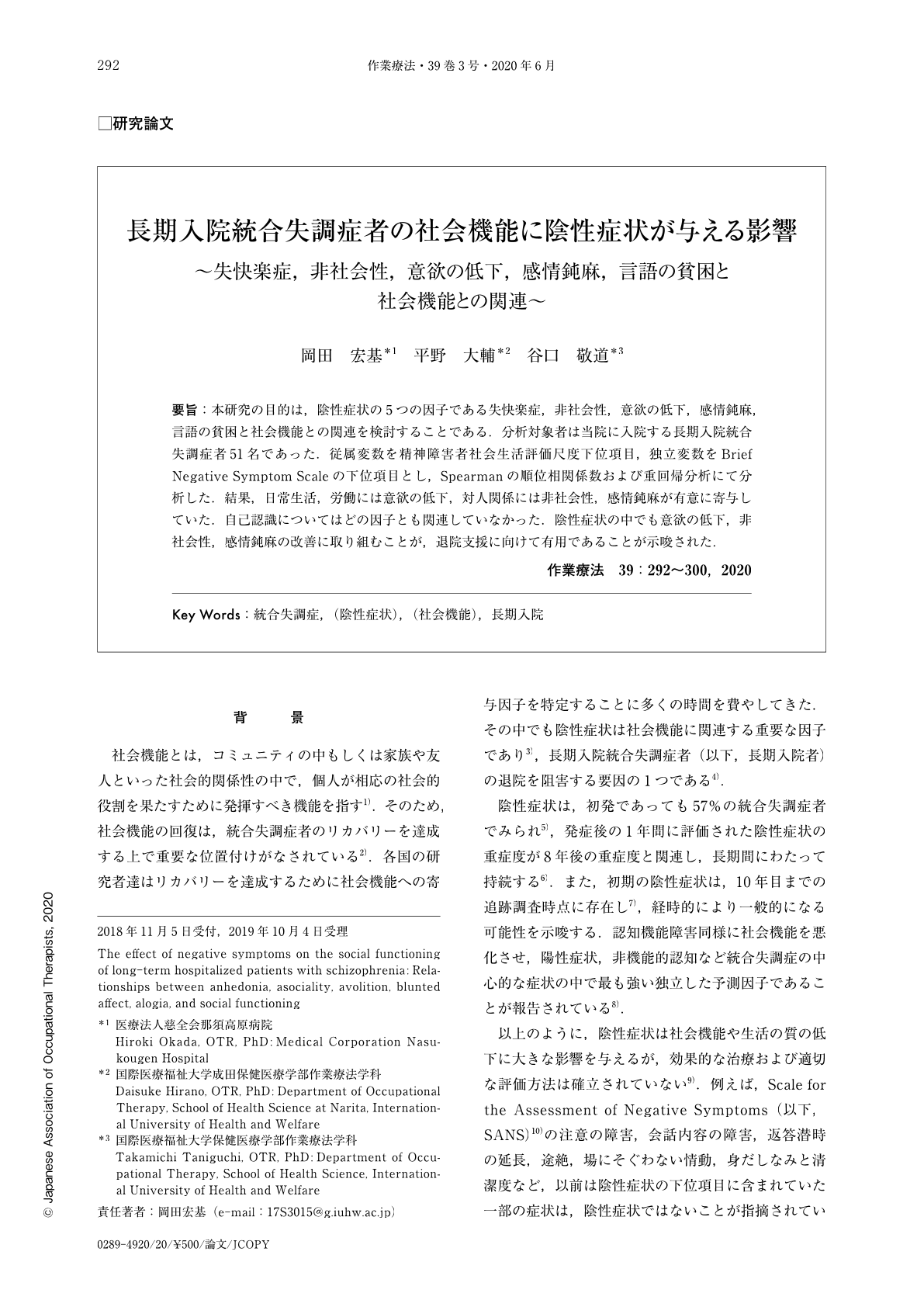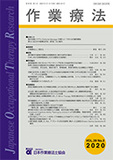Japanese
English
- 販売していません
- Abstract 文献概要
- 1ページ目 Look Inside
- 参考文献 Reference
要旨:本研究の目的は,陰性症状の5つの因子である失快楽症,非社会性,意欲の低下,感情鈍麻,言語の貧困と社会機能との関連を検討することである.分析対象者は当院に入院する長期入院統合失調症者51名であった.従属変数を精神障害者社会生活評価尺度下位項目,独立変数をBrief Negative Symptom Scaleの下位項目とし,Spearmanの順位相関係数および重回帰分析にて分析した.結果,日常生活,労働には意欲の低下,対人関係には非社会性,感情鈍麻が有意に寄与していた.自己認識についてはどの因子とも関連していなかった.陰性症状の中でも意欲の低下,非社会性,感情鈍麻の改善に取り組むことが,退院支援に向けて有用であることが示唆された.
This study investigated whether or not the effects of long-term hospitalization among patients with schizophrenia on their social functioning such as daily life activities, interpersonal relationships, employment, and so on would create negative symptoms such as anhedonia, asociality, avolition, blunted affect, and alogia. The sample was comprised of 51 participants. The dependent variable was one item in the Life Assessment Scale for the Mentally Ill, and the independent variables were subdomains of the Brief Negative Symptom Scale. The items were analyzed with Spearman's rank correlation coefficient and subsequently entered in a multiple regression analysis. Results showed that daily life activities and work contribution significantly predicted avolition. Furthermore, interpersonal relationships significantly predicted asociality and blunted affect. Self-recognition was not associated with any factor. For managing the negative symptoms of schizophrenia, relief efforts must focus on discharge support, avolition, asociality, and blunted affect.

Copyright © 2020, Japanese Association of Occupational Therapists. All rights reserved.


